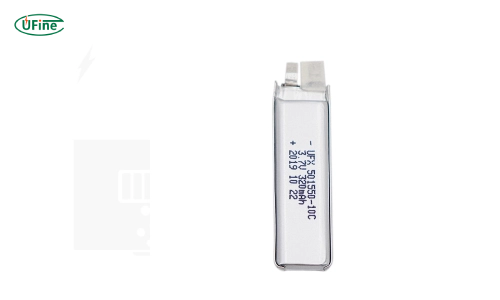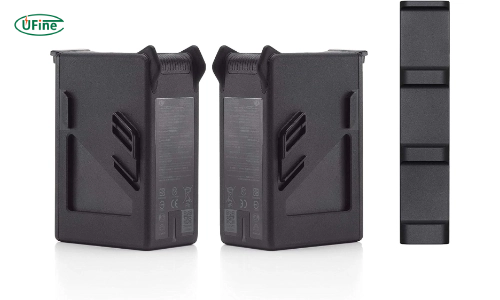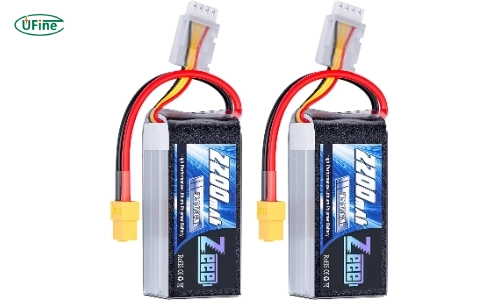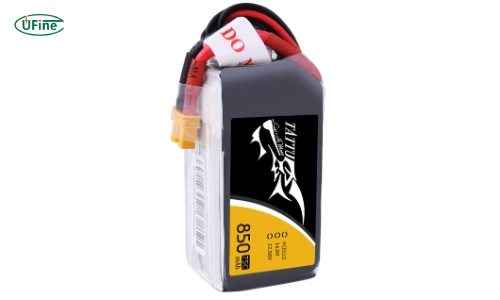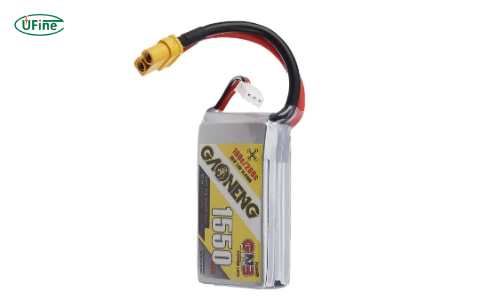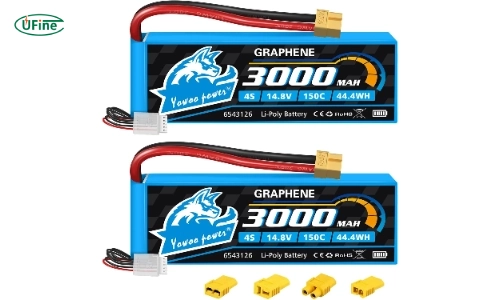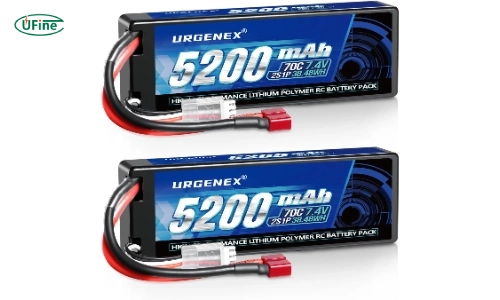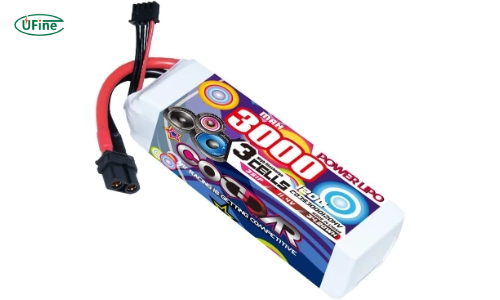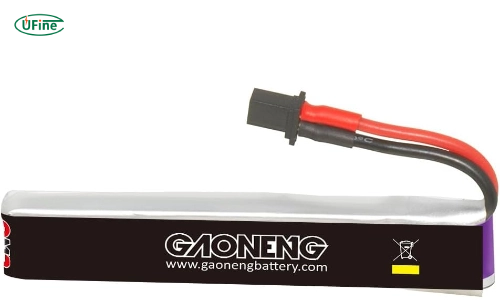Are you tired of your FPV drone cutting short its flight just as the action is heating up? The secret to longer, more exciting flights is in selecting an excellent FPV Battery.
It can be hugely challenging to find the best FPV batteries, as we are faced with an overwhelming selection. But there is no need to worry; here is a selection of the top 9 FPV battery options that ensure durability, power, and reliability.
So, let’s get started.
Part 1. What is an FPV battery?
Before getting straight to the top 10 best FPV batteries, it’s essential to understand what an FPV battery is.
The FPV battery in an FPV drone serves as the device’s heart. It is what provides this device with the omnipotent advent of sufficient energy to stay in the air for a considerable amount of time.
As opposed to conventional batteries, FPV batteries are designed to release power at extremely high current draws. This is because of the high discharge rates necessary for the steep turns and fast acceleration typical for drone racing or aerial acrobatics.
It’s generally labeled with the voltage -S- and capacity -mAh, for example, 4S 1500mAh, where a balance between power and flight time is taken.
Now you know the basics, it’s time to discuss the top 10 recommended FPV batteries you can consider.
Part 2. Top 9 recommended FPV batteries
Hundreds of FPV batteries are in the market, making it difficult to choose the right one. So, to help you, we have shortlisted the ten best FPV battery options you may consider using:
1. Ufine 3.7 V 320mAh High Rate Discharge Battery 501550-10C
Pros:
- It retains more than 80% of its capacity after 500 cycles.
- Temperature and humidity working ranges: -20°C to 60°C and.
- Low rate of self-discharge, ensuring long-time dependability.
- Compact and lightweight, ideal for space-limited applications.
Cons:
- Higher self-discharge occurs at full charge than at 70% SOC.
- Limited information on long-term durability under varied environmental conditions.
Performance Analysis:
The manufacturer of the Ufine 3.7 V 320 mAh high-discharge battery has designed it to deliver relentless, continuous power for performance in devices crammed with lots of power-hungry, quick-bursting applications, giving an FPV drone the needed punch on the throttle for rapid acceleration and agile maneuvering.
2. Original FPV Drone Intelligent Flight Battery 2000 MAh
Pros:
- Intelligent features to prevent overcharging.
- Up to 20 minutes of flight time.
- Built-in safety measures for stable performance.
Cons:
- Aggressive flying significantly reduces flight time.
- It may require a dedicated DJI power supply or charging hub.
Performance Analysis:
This intelligent flight battery is tailored explicitly for FPV drones, balancing capacity, and innovative technology. It has all safety features and extended flight time, providing a reliable flight environment for both the recreative and professional user.
3. Zeee 3S 2200mAh Lipo Battery
Pros:
- High capacity for longer flight times.
- Reliable performance with a high discharge rate.
Cons:
- Some reports have shorter-than-expected lifespans.
- Weight may be a consideration for specific drone models.
Performance Analysis:
The Zeee 3S 2200mAh Lipo Battery is known for its reliability and high capacity, translating to extended flight times for FPV drones. However, pilots should consider the weight and balance of their drones when selecting this battery.
4. Tattu 14.8V 4S 75C 850mAh LiPo Battery Pack
Pros:
- High discharge rate for powerful performance.
- Compact and lightweight, they are suitable for smaller drones.
Cons:
- It may not be suitable for larger drones requiring longer flight times.
- Limited availability in certain regions.
Performance Analysis:
Tattu has designed a battery pack that powers up high-performance FPV drones, giving that boost when everything counts, with a particular aspect particularly tailored towards racing drones and smaller quadcopters.
5. Gaoneng GNB 7.4V 1550mAh 100C
Pros:
- High discharge rate for responsive power delivery.
- Lightweight design for agile flight characteristics.
Cons:
- Higher capacity options may be required for extended flight sessions.
- Specific charging requirements to maintain battery health.
Performance Analysis:
This makes the Gaoneng GNB a good battery for competitive FPV drone races, where high acceleration and sharp turns are the norm. The lightweight nature further aids in the agility and speed of the drone.
6. Yowoo 2 Packs 4S Lipo Battery 3000mAh
Pros:
- High capacity for extended flight times.
- Graphene technology for improved performance and durability.
- Comes with multiple adapters for versatility.
Cons:
- Higher price point compared to standard LiPo batteries.
- It may require a specific charger for optimal charging efficiency.
Performance Analysis:
Manufactured with a graphene composition, this battery is made to provide the right power-to-weight balance for an excellent flight time without losing agility. The high discharge rate allows pilots to enjoy continual power during many maneuvers.
7. URGENEX 7.4V 5200mAh Lipo Battery
Pros:
- Exceptionally high capacity for marathon flight sessions.
- Robust build quality tailored for RC applications.
- 70C discharge rate for strong and steady power output.
Cons:
- The 2S configuration may only be suitable for some drones.
- Bulkier size could affect the drone’s center of gravity.
- Some users reported issues with cell balance over time.
Performance Analysis:
This makes the URGENEX battery a good option, both in capacity and in supplying performance for pilots whose priorities are set more on flight durations than speed. High-grade construction and a relatively high discharge rate serve the endurance requirements of pilots who aim to fly further without the necessity of speed.
8. 3000mAh 3S 11.4V 120C HV LiPo Battery
Pros:
- High voltage output for dynamic performance.
- 120C discharge rate enables responsive throttle changes.
- Compact size suitable for a range of drone models.
Cons:
- The 3S configuration might not meet the needs of high-performance drones.
- Limited user feedback is available for comprehensive evaluation.
- Some pilots may prefer a standard voltage for compatibility reasons.
Performance Analysis:
This battery is designed for those who need a quick power response, with its high discharge rate and voltage providing an excellent thrust-to-weight ratio for agile flying.
9. GAONENG 6pcs GNB LiPo Battery 1S 380mAh
Pros:
- A pack of six offers convenience and continuous flying sessions.
- The high discharge rate of 90C for peak performance.
- Lightweight and compact, ideal for smaller drones.
- PH2.0 connector is widely used in the drone industry.
Cons:
- Lower capacity per battery means shorter individual flight times.
- It is best suited for micro or mini drones rather than larger models.
- Some users may need help managing multiple batteries.
Performance Analysis:
These batteries are ideal for micro or mini drone pilots who value agility and performance. The high discharge rate enables it to make fast moves, and the pack quantity in use allows the drones to be flown back to back without subjecting them to long rest periods between inhibitory flights.
Part 4. Factors to consider when choosing FPV batteries
Choosing your ideal FPV batter depends on several key factors that enable your drone to perform to your liking,
- Voltage (S Rating): It creates output power for motor compatibility.
- Capacity (mAh): Influences flight time; higher capacity provides longer flights.
- Discharge Rate (C Rating): It defines the ability of a battery to supply energy adequately fast when needed. In other words, it is critical when it comes to attaining.
- Size and Weight: Affect the agility and flight characteristics of drones.
- Connector Type: It should be compatible with your drone’s power connector.
- Brand Reputation: More trusted brands will likely show better performance and durability.
Part 5. Proper care and use of FPV batteries
Here are some tips to keep the longevity and maintain peak performance for your FPV batteries:
- Storage: Store batteries at room temperature in a fireproof container.
- Charging: Use a good quality charger with voltage and current settings as per requirements.
- Discharge: Do not discharge fully; charge once voltage drops to suitable levels.
- Handling: Inspect batteries before and after flights for damage or swelling.
- Cooling: Do not fly the batteries too quickly after charging to keep them from overheating.
- Flesh: Alternate between several batteries to prolong total life,
So, as long as you adhere to these rules, your FPV batteries will last very long and have high reliability and performance every time you fly.
Part 6. FAQs
-
What does the “S” rating mean in FPV batteries?
The “S” rating (e.g., 4S, 6S) is the number of cells in series attached in the pack, defining its voltage and power. -
What is the significance of the “mAh” rating stamped on an FPV battery?
The “mAh” rating denotes the battery’s capacity, which corresponds directly to the flight time. Higher mAh ratings lend longer flight durations. -
What are the many safe discharge rates (C rating) famous for FPV batteries?
The C-rating represents how quickly the energy will be released from the battery. For FPV drones, you’d look at C ratings from 50C up to 120C, depending on the power your setup requires. -
How should I store FPV batteries when not in use?
Store FPV batteries in a fireproof container at room temperature; do not expose them to sunshine and dampness. -
Why is the use of balance charging necessary for FPV batteries?
A balance charger ensures that the same charging current is passed into each cell in the battery pack. If not, the lower-charged or higher-charged cells would result in undercharging or overcharging, damaging the battery and affecting the use of the battery in general.
Related Tags:
More Articles
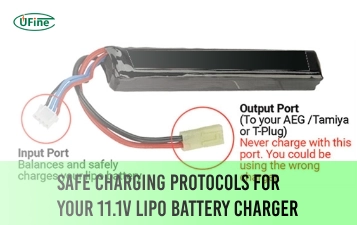
Safe Charging Protocols for Your 11.1V LiPo Battery Charger
Safely charge your 11.1V LiPo battery by following proper rates, using safety tools, and avoiding common charging mistakes.
11.1 V LiPo Battery Airsoft: Boosting Field Performance
Upgrade your airsoft gun with an 11.1V LiPo battery for faster firing, longer runtime, and top-tier performance on the battlefield.
Batteries for Trolling Motors Lightweight vs. Leaf Blower Power
Explore the best lightweight trolling motor batteries and how they compare to leaf blower power for performance, portability, and runtime.
What Is a 2C Battery?
Learn what a 2C battery is, how C-rates affect performance, and how to calculate the number of batteries your device needs.
What Battery Does LED Strips Use?
Discover which batteries power LED strips best. Learn about voltage, capacity, battery types, and how to safely power your LED lighting projects.
